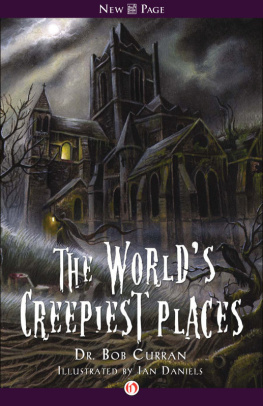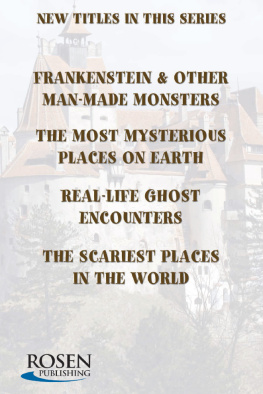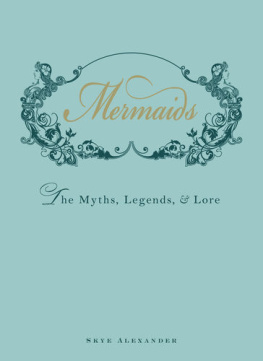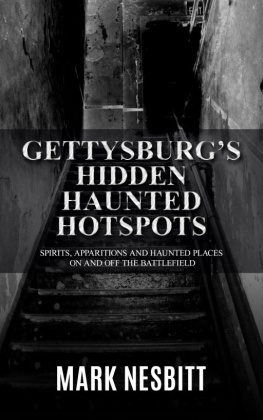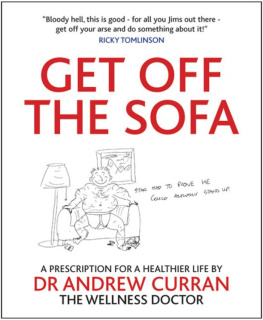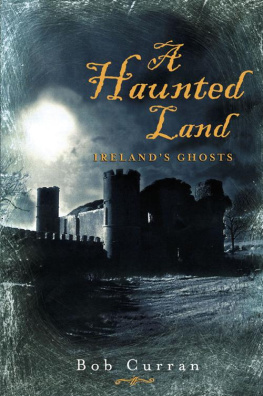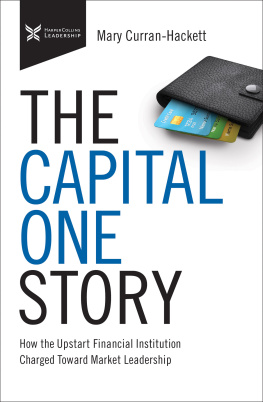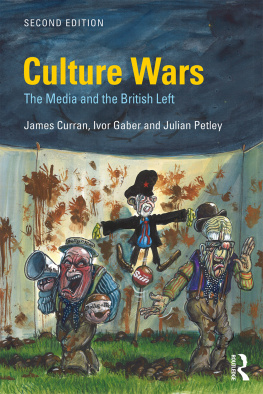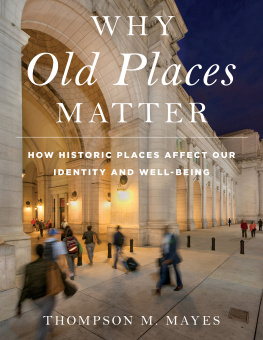
The Worlds Creepiest Places
Dr. Bob Curran
Illustrations by Ian Daniels

Introduction
I want to make your flesh creep.
The fat boy in The Pickwick Papers by Charles Dickens
What makes our flesh crawl? What is it that gives the sensation of cold fingers running up and down our spines or of the hairs on the back of our necks prickling and rising? And why would such sensations be associated with certain places and localities?
The dictionary defines the word creepy as an unusual or unpleasant sensation of uneasiness or fear as of things crawling or creeping on ones skin. Probably we have all experienced such feelings at one time or anotherwhen we are alone and uncertain, when we are in an unfamiliar or perhaps threatening place, when we are faced with the unusual or frightening. Creepiness then is a basic response to where we are or what is going on around us, to the unfamiliar or to what we imagine might happen to us. And perhaps it is our ability to respond in both mental and physical terms that holds the key. What if we were to see a ghost, what if we were to feel its touch? If we shiver at these words, then it is both our imaginary and our physical senses that are responding. We can envisage what it might be like. Similarly, with some person who is odd or strange or who has unfamiliar ways about themthe unkempt old man who seems to be following you down the road; the old woman who talks to herself on the bus or subway; the person who just doesnt look right whom you meet on the street; or a neighbor who might behave differently or oddly on a fairly regular basiswe sometimes describe such people as creepy. Once again, this constitutes a response (usually instantaneous) to something which weve encountered. Our fears or uncertainties about what such people might be or do are manifesting themselves in a physical way. But what about a building or a specific place?
A good number of years ago, I temporarily worked in Belfast and rented a flat in what had once been a relatively prosperous residential area, but which was now in a kind of genteel decline. Each morning, as I walked down to catch the bus into the city, I had to pass, at the very end of the tree-lined street where I lived, a large house that stood at its very end and where my street met a main road. The building stood in its own grounds, well back from the road, and was surrounded by a tall and rather unkempt hedge. The entrance to it was a rusty iron gate, which had obviously not been opened in a long time, and which was secured with a chain and a padlock. It was a solid four-square house, old fashioned but large and imposing in its own waya sloping ornamented roof and large wood-framed windows. I could imagine that it was the sort of house that would have once been the home of a fairly wealthy and respectable family. Clearly, no one lived there now, for large and heavy main doors were permanently closed and the garden beyond was an absolute tangle into which all manner of rubbishempty beer cans and paper bags mainlyhad been thrown. A couple of the windows had been boarded up and several more were adorned with heavy old-fashioned shutters; two or three peered down almost malevolently on all who passed too close to the rusting gate. The paint and plaster were peeling and an air of forlorn decay hung about the entire dwelling, but this also seemed to give it an air of menace. Each time I passed it on my way to and from the bus stop, I felt a little bit uneasy, as though the house itself were somehow aware of me and followed me as I walked in front of the rusty gate with an unfriendly eye. And as I walked up the street to my flat, I felt the odd and unpleasant sensation all through my body. Sometimes as I passed by, I thought that I glimpsed something or someone at an uncurtained window or disappearing around the corner of a falling wooden garage at the side, but it was probably no more than my own imagination.
On one occasion I spoke to my landlady (who lived in the same house as myself) about the house at the end of the street, asking her almost casually if she knew anything about it. She knew nothing (she had only lived in the area for a few years) except that it had always been empty. However, she thought that she had heard that something very nasty had happened there many years beforea murder perhaps, maybe even of a childbut she couldnt be sure. She, too, admitted that every time she passed by it she always experienced a certain unpleasant feelingit gave her the creeps. From then on, the house took on an even more sinister aspect, and I actually found myself increasing my step as I walked past the rusting gateway. Sometimes as I passed by, I was almost sure that I heard the cry of a child from somewhere close by, and I remembered what the landlady had said about the supposed murder. I imagined that somebody stood at the window in one of those musty rooms to watch me go past and that he or she meant me (or anybody) no good. The feeling that Id had about the old place seemed to grow strongerthe creeps more intense. However, my work in Belfast finished and I moved away and the house at the end of the street was lost in memory. But the feelings about it somehow remained, and I still would remember it from time to time with a slight shudder.
Not so long ago, I had reason to go back to the area; I drove my car along the busy road and passed the end of the street where I once lived. On an impulse I turned my car into it and stopped. The house was still there, but it was very different. It was certainly the same building, but it was now a bright, modernized, family home. The tangled lawn had been cut and tidied, and there were childrens toysa swing and a slide and some bouncy things. The doors and windows had been painted, the stonework had been re-pointed and re-plastered, and a modern garage had been built at the side. A new gate lay open and welcoming. And as I stood there, I realized that there were no creepy feelings associated with the place at all. I later asked a man from the area about the house and if there was a history attached to it. He said that hed never heard anything even vaguely sinister about itit had been owned at one time by an old couple who had no children and who had let it get badly run down. When they had died, the place had passed through the hands of various people, none of whom had actually lived there, and fell further into decay until it was bought and modernized. When I asked about the supposed murder, he shook his head. Hed never heard of any murder connected with the house, let alone the murder of a child or of anything particularly nasty happening there. The house looked so dilapidated, he said, that I suppose people started to make up stories about it. But there was nothing to them.
I thought about the house at the end of the street (and several other old houses that Ive known) when I was asked to write this book. In fact, as it came into my mind, I experienced once again that tingling through my body as I had all those years ago. What is it that makes a place creepy and can give us the distinct sensation that I experienced when I passed by that rusty gate? What is it that made it stay in my memory through the years? Maybe some of you know of similar placesmaybe even at the end of your own streetthat make you feel uncomfortable. It doesnt actually have to be a house though, or even a streetperhaps its a particular spot way out in the country or in a woodland or an abandoned factory, but most people that Ive talked to know of some place that gives them an odd or strange feeling, or gives them a sensation as if their skin were crawling. But what are the essentials of creepiness? Thinking about my own experiences, I might venture to make a few suggestions.
Next page
